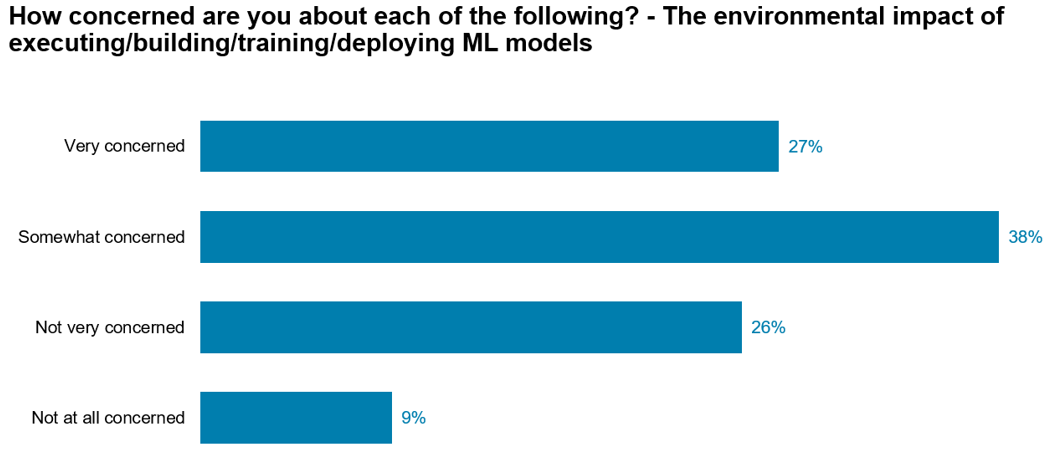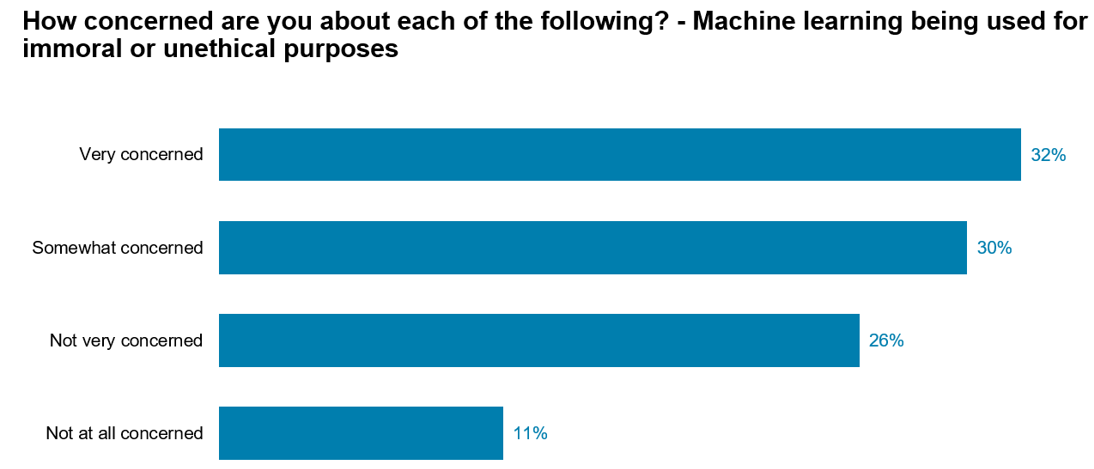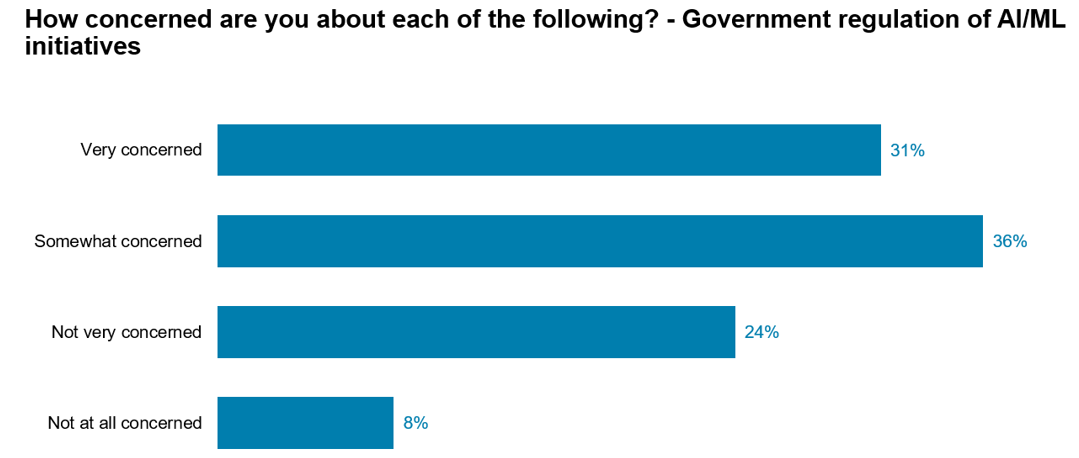
Once a mere topic of academic discussion or science fiction, AI is growing increasingly accepted in everyday society, and transforming businesses across the globe. According to a study from the 451 Alliance, the overwhelming majority (95%) see AI as a critical part of their digital transformation efforts, and adoption continues to rise each year.
With this rising adoption, more businesses are reaping the benefits of AI, ranging from cost savings and improved workforce productivity to business agility and better customer engagement. That being said, AI is not a risk-free investment, and there is growing pressure for businesses to consider the environmental, social and governance (ESG) impacts of this technology, particularly in regard to ethics.
But just how concerned are businesses about these issues? In a recent study, we asked AI adopters this very question.

of respondents see AI as a critical part of their digital transformation efforts
Environmental Impacts of AI
Although a large percentage (65%) of businesses care about the environmental impact of AI, the level of concern is highest in businesses with greater quantities of data. This is to be expected – more data being fed into machine learning models means higher compute requirements, resulting in a larger carbon footprint.
Interestingly enough, the same technology generating this energy output is also being used to address it. AI can be deployed to optimize energy outputs and predict factors that impact consumption levels.

Social Impacts of AI
Consumers have long been wary of the ethical concerns around AI, and it’s clear from these results that most businesses are as well. But what about the 47% that claim they aren’t so concerned?
We’ve found this largely boils down to ‘early optimism.’
Businesses with less exposure to the technology seem more inclined to look at it with rose-colored glasses. They see the benefits of AI, but lack the experience to consider its risks. However, as more businesses move into advanced stages of adoption maturity, we expect concern about ethics to rise adjacently.

Governance Impacts of AI
Of all ESG considerations, the highest percentage (67%) of businesses claim to be concerned about government regulation of AI. This is especially true in the US market, where AI guidelines are in place but regulations are few and far between.
In the US, regulation around data privacy exists that can be applied to the data used to train AI models, but when it comes to predictions, applications and algorithms, businesses are largely expected to self-govern. In doing so, some find ease in the flexibility this self-governance affords them, while others would prefer to build their AI systems with regulatory requirements in mind to minimize future road bumps.
In recent months, the EU has taken steps to better regulate AI, proposing legislation that will define the risk levels of different AI systems, set clear requirements for these systems, and prohibit applications that are considered to have an unacceptable risk level. These regulations will take time to develop and implement, so we’ll have to wait and see how they unfold, and whether this regulation will serve as a template for future international AI governance policies.

Want insights on AI trends delivered to your inbox? Join the 451 Alliance.

